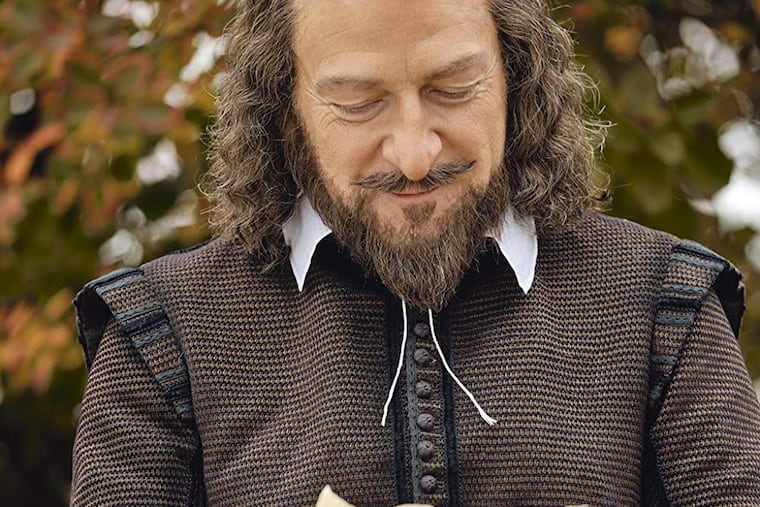‘All Is True’: No holds bard in this speculative look at Shakespeare’s final days
In his final days, Will Shakespeare returns to the town of his birth to reconcile with his family in All Is True, starring Kenneth Branagh, and directed by him.

All Is True opens with William Shakespeare returning home after his Globe Theatre burns to the ground — he’s near the end of his life, back with a family he little knows and apparently doesn’t much like. The feeling is mutual.
The playwright (Kenneth Branagh, also directing) is old, retired, depressed. He’s also English, so, naturally, he starts gardening. This keeps him busy, to keep away from his resentful wife, Anne (Judi Dench), and his even more resentful youngest daughter, Judith (Kathryn Wilder).
Will (as his wife calls him) is planting a kind of grief garden — his Stratford-on-Avon country estate is where his only son, Hamnet, died as a boy, and the movie hints that the location’s link to this death has kept Shakespeare away in London. Now he’s home to stay, and he’s forced to confront the tragedy — its toll on his own emotional health and on that of his family. Unresolved feelings about the circumstances of the boy’s death turn out to be the primary source of family bitterness.
History records that Hamnet probably died of the plague, but the movie regards history as a jumping-off point. All Is True (the title is playfully ironic) reminds us that Shakespeare liked to stretch the truth, or simply make things up.
In that spirit, Hamnet’s death becomes the source of highly speculative biography, and also the film’s dramatic epicenter — the cause, for instance, of the grievance that has made Judith so spiteful. Judith is Hamnet’s surviving twin, and she feels that in deeply patriarchal Elizabethan society, this loss of a male heir caused her father’s affections to diminish. She suspects her father believes “the wrong twin died,” which comes dangerously close to a line of dialogue in an equally speculative biography — Walk Hard: The Dewey Cox Story.
All Is True conjures new resolutions to old mysteries. Who was the mysterious “dark lady” of the sonnets? The movie’s answer is novel, and it leads to a kind of acting cage match between Branagh and Ian McKellan to see who can do the more impressive reading of the Bard’s work.
These quotations call attention to the conversational anachronisms of Ben Elton’s screenplay, which he brushes off by inserting a cheeky, meta-endorsement from Shakespeare himself — in All Is True, in fact, he is actually heard to say that he never let anything get in the way of a good story.
Is this a good story?
Sometimes it’s very good. Branagh, with a false nose and inside-out comfort with his subject, makes a formidable Shakespeare. Dench is his equal as Anne, and as they spend more time together, the actors allow the relationship to reveal hidden depths, depicting a mature relationship full of pleasures and disappointments.
For a guy known as a pretty good spinner of yarns, though, Shakespeare is strangely slow on the uptake. Revelations that seem obvious to the viewer sneak up on poor Will, and those that are less obvious (contrived to reflect events in his most famous plays) sometimes register as unconvincing.
The movie is nice-looking, though, and director Branagh does some interesting, Rembrandt-ish things with low light — faces are often illuminated by nothing more than a period-appropriate fireplace or candle. And Branagh knows how to put an actor in a position to shine.
Especially, as Shakespeare would surely have noted, Kenneth Branagh.
All Is True. Directed by Kenneth Branagh. With Kenneth Branagh, Judi Dench, Kathryn Wilder, and Ian McKellen. Distributed by Sony Pictures Classics.
Running time: 1 hour, 41 mins.
Parents guide: PG-13 (thematic elements, suggestive material, and language)
Playing at: Ritz Five, Bryn Mawr Film Institute, AMC Voorhees.